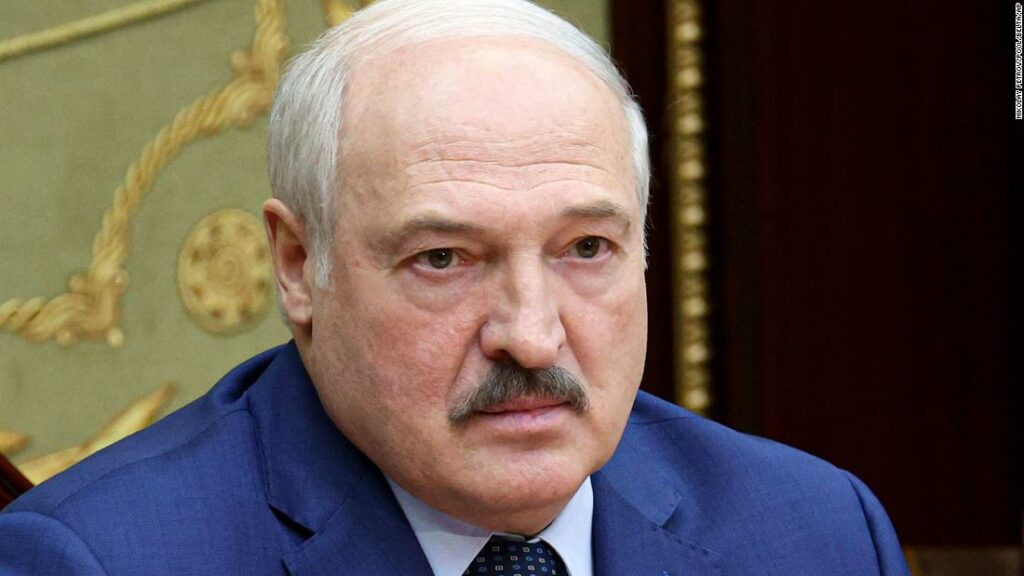US and allies impose new sanctions on Belarus over migrant crisis and ongoing human rights abuses

The US, United Kingdom, European Union, and Canada took coordinated action against a number of Belarusian entities and individuals in their latest effort to put pressure on Belarus’s longtime strongman leader Alexander Lukashenko, who has been accused of using “innocent migrants as a political weapon, as an effort at destabilization,” in the words of US Secretary of State Antony Blinken, and whose government has carried out a campaign of repression against activists, dissidents and journalists.”We remain committed to supporting the democratic aspirations of the people of Belarus and stand together to impose costs on the regime — and those who support it — for its efforts to silence the voices of independent civil society, media, and all Belarusians seeking to speak the truth about what is happening in their country,” the four nations said in a joint statement.The sanctions also come at a time of heightened tension between Moscow — the Lukashenko regime’s strongest backer — and much of the West as Russian President Vladimir Putin amasses troops on the border with Ukraine.In the joint statement, the US, Canada, UK, and EU demanded that the Lukashenko “immediately and completely halt its orchestrating of irregular migration across its borders with the EU.””Those, in Belarus or in third countries, who facilitate illegal crossing of the EU’s external borders should know this comes at a substantial cost,” the nations said.Belarusian Foreign Minister Vladimir Makei, speaking at the Organization for Security and Co-operation in Europe (OSCE) ministerial in Stockholm Thursday, “I think it actually is quite significant,” said Julia Friedlander, a senior fellow at the Atlantic Council and former senior policy adviser on Europe at the Treasury Department.Friedlander told CNN that the restrictions on debt issuance are a particularly big deal, noting that “it shows that the administration is saying now is the moment to use all of our leverage.””I am very skeptical that sanctions pressure will cause (Lukashenko) to change course,” Friedlander said. “This is about limiting he and his inner circle’s ability to act financially.””It could undermine his ability to keep the economy stable, which could lead to further domestic unrest,” she added.Kenneth Yalowitz, a former US Ambassador to Belarus and fellow at the Wilson Center, also expressed doubt that the new sanctions would prompt a behavior change by Lukashenko, but said they are financially significant.”They’re probably going to have a hard time borrowing money now and issuing bonds,” he told CNN. “It’s also significant to me, perhaps as a signal to the Russian side, you know, the kinds of financial sanctions that we could bring to bear if they go into Ukraine.”Blinken repeatedly warned over the past several days that Moscow would “high-impact economic measures that we’ve refrained from taking in the past” if it invades Ukraine. Yalowitz told CNN that “Belarus is going to be more expensive for the Russians to maintain,” but both he and Friedlander said it was unlikely Putin would cease his support Lukashenko over the new tranches sanctions.”Belarus, for Putin, is just another part of the military equation that he’s bringing to bear against Ukraine. So he’s not going to jettison Lukashenka now,” he said.



